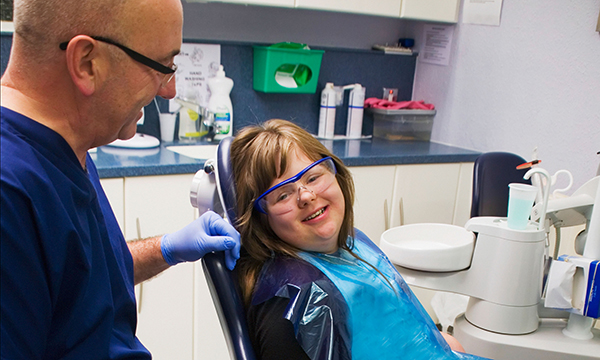Oral health and supporting people with intellectual disabilities to get access to dental treatment

Resource
Exclusive quality-assured learning resource
Online

Available to RCNi Plus subscribers
Applicable for any nurse with an RCNi subscription
Oral health is an important aspect of a person’s overall health and well-being. People with intellectual disabilities have poorer oral health than the general population, so it is essential that service users and their carers are supported to address this. This article provides information for nurses and other healthcare professionals on how to provide evidence-based practice that supports people with intellectual disabilities with their oral healthcare and assists them to access dental services. The authors examine the latest evidence about optimal practice in oral healthcare for people with intellectual disabilities, emphasising the importance of a person-centred approach. The article also discusses the barriers that people with intellectual disabilities experience when accessing dental services and how these barriers can be addressed.
Who is this resource for?
This resource is aimed at nurses and nursing support workers across all settings and levels of practice, including students of health, social work and care professions.

 ;
; ;
; ;
; ;
;